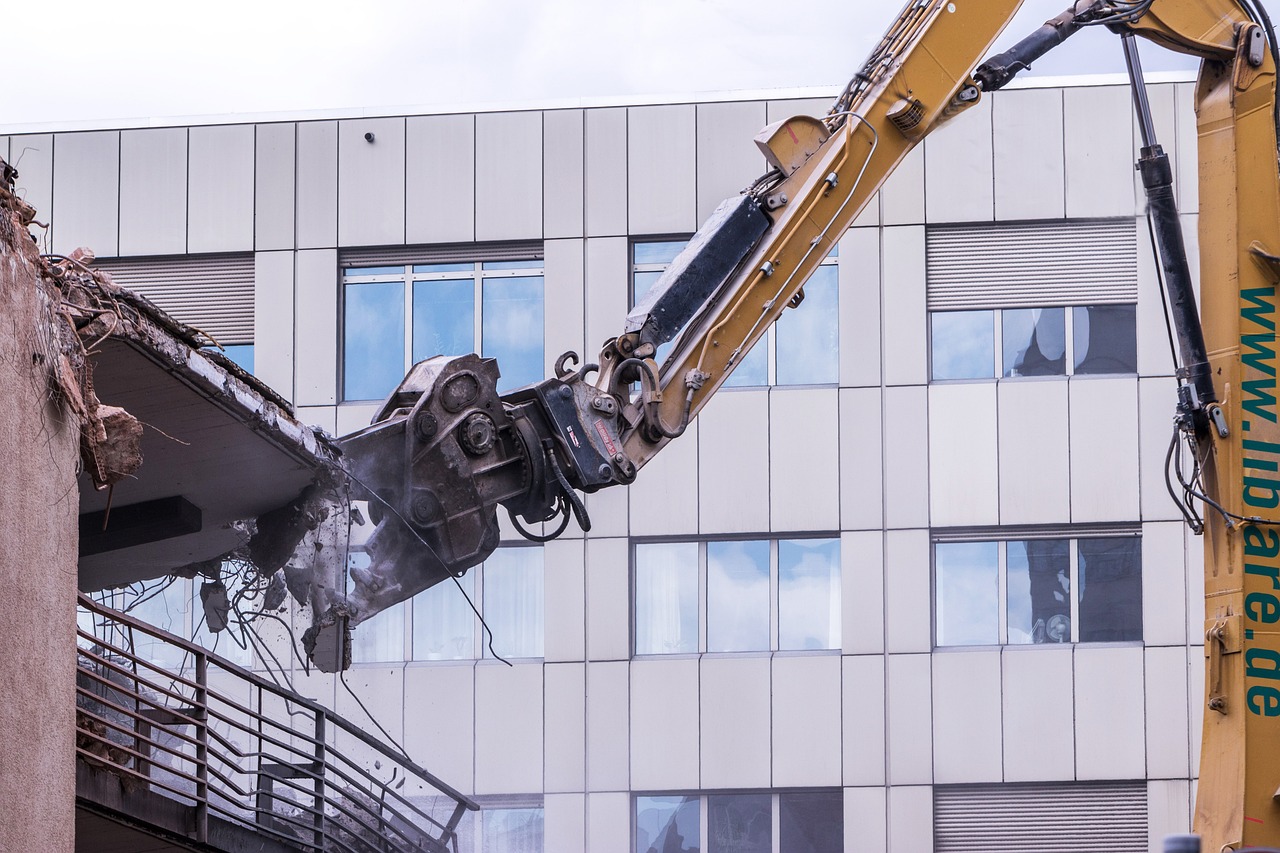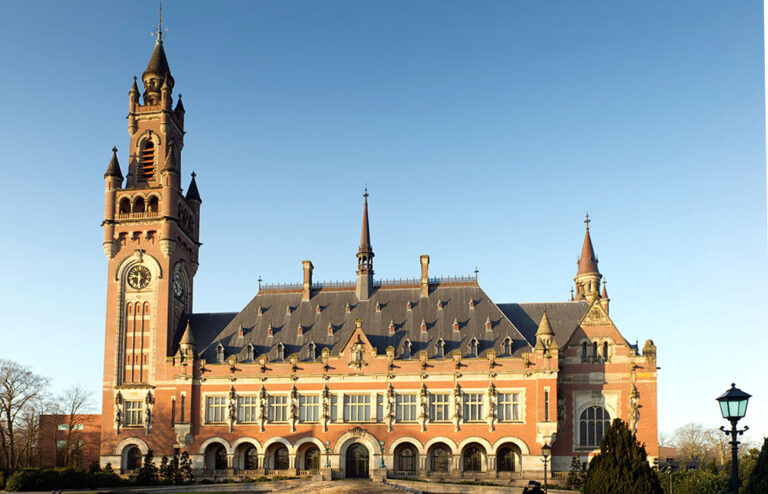
New Delhi: The Supreme Court of India today delivered a scathing indictment of the Uttar Pradesh government’s demolition practices, particularly regarding the Prayagraj case. The Court termed the demolitions carried out by the Prayagraj Development Authority, which had razed multiple properties in the city without following due legal process, “inhuman and illegal,” emphasizing the violation of fundamental rights, especially the right to shelter under Article 21 of the Indian Constitution. The Court mandated the state to compensate each affected homeowner with ₹10 lakh and permitted them to rebuild their houses legally.
The case revolves around the razing of residential structures, many of which were legally built, by the Prayagraj Development Authority (PDA) in January 2023. Several properties, including residential buildings, were demolished, with authorities asserting they were illegal encroachments. Nonetheless, many property owners maintained that their constructions were legitimate, leading to significant protests and subsequent legal actions. The lawyer for the petitioners informed the court that the authorities had erroneously identified the land on which their homes were situated as belonging to gangster Atiq Ahmed, who was murdered in 2023.
The government justified these demolitions as part of an anti-encroachment drive. However, the Supreme Court, after reviewing the matter, took a strong stance against the action, deeming it illegal and inhumane.
In its judgment, the Court emphasized that the demolitions were carried out without following due process, including the failure to issue proper notices and provide the affected families a chance to defend their properties in court. While the State counsel claimed that the notices were posted on the properties, the court raised concerns about the absence of registered mail notifications.
This ruling comes as a significant intervention in the ongoing debate surrounding the controversial “bulldozer politics,” which has seen numerous demolitions of structures that citizens claim were built in compliance with the law. It is significant as it marks a clear rebuke of the Uttar Pradesh government’s bulldozer politics, which has gained notoriety for being perceived as arbitrary and without legal basis. By highlighting the need for due process, the Supreme Court reinforced the idea that demolitions should only occur when all legal procedures, including notices and hearings, are followed.
The term “bulldozer politics” in Uttar Pradesh signifies the state’s practice of demolishing structures considered illegal or unauthorized. This approach has resulted in considerable legal examination and multiple court rulings regarding its enforcement.
The Court declared that the bulldozer actions violated Article 21 (Right to Life) of the Indian Constitution, which protects individuals’ rights to live with dignity and security. It emphasized that while the government had the right to remove encroachments, it could not bypass due process, particularly when demolitions targeted legally constructed properties. It ordered the Uttar Pradesh government to pay compensation of ₹10 lakh to each affected homeowner and to ensure the reconstruction of the demolished properties in compliance with existing urban planning and building regulations.
Today’s ruling reinforced the idea that no government can engage in mass demolitions without first following established legal procedures. This decision is significant in curbing the arbitrary use of bulldozers by the state, especially when it concerns the demolition of structures that were built lawfully. It also underscores the judiciary’s growing scrutiny of the state’s bulldozer-driven governance and its implications for democratic principles.
The Court condemned these demolitions as illegal and inhumane, emphasizing that such actions cannot bypass legal protections, especially when dealing with legally constructed properties.
A Pattern of Legal Defeats for Bulldozer Politics
Under Chief Minister Yogi Adityanath’s administration, the state of Uttar Pradesh has witnessed the widespread use of bulldozers to demolish buildings and the state government has often defended these actions, citing urban development, anti-encroachment drives, and law and order concerns. However, this aggressive approach to demolitions has sparked significant controversy, particularly when it comes to the demolition of legal structures that had complied with urban planning and zoning regulations.
Despite the government’s claims, there have been several high-profile cases where the demolitions of structures, considered legally constructed, have been challenged in courts. The courts, particularly the Supreme Court and various High Courts, have increasingly stepped in to reprimand the Uttar Pradesh government for failing to adhere to due process in carrying out demolitions. These cases have raised important questions regarding the balance between law enforcement, property rights, and the rule of law.
While the Prayagraj case is the most recent example, it is far from the first instance of bulldozer demolitions leading to legal challenges in Uttar Pradesh. Over the past few years, a series of demolitions have taken place in the state, many of which were challenged in court by property owners whose structures were demolished despite being legally built. These cases have consistently led to rulings against the government, as the courts have found that the demolitions violated legal rights and did not adhere to proper procedures.
Akbarnagar Demolition in Lucknow (2022)
One of the most prominent cases occurred in Akbarnagar, Lucknow, in March 2022, when bulldozers razed over 1,800 homes in the area. Despite residents possessing legal ownership documents, the demolitions were carried out without adequate notice or hearings. The residents challenged the demolitions in court, and in 2024, the Supreme Court ruled that the demolitions were illegal and ordered the state to provide compensation. Justice S. Ravindra Bhat remarked, “The bulldozer approach may be appealing for quick fixes, but it completely disregards citizens’ legal rights and due process, which are the cornerstone of any democracy.” This case established a precedent for holding the government accountable when demolitions are executed unlawfully.
Maharajganj District Demolition (2019)
In Maharajganj, the government demolished a property owned by Manoj Tibrewal Aakash in 2019, claiming the structure was illegally built. However, Aakash produced valid ownership documents and argued that the demolition violated his right to property under Article 300A of the Constitution. In 2024, the Supreme Court ruled in Aakash’s favor, ordering the government to pay ₹25 lakh in compensation. Justice B.R. Gavai noted, “State action must be tempered with fairness, and bulldozer demolitions cannot be justified in the absence of due legal procedure.”
Sarva Sewa Sangh Buildings in Varanasi (2023)
In August 2023, the Uttar Pradesh government demolished buildings belonging to Sarva Sewa Sangh, a Gandhian organization in Varanasi, including the Gandhi Vidya Sansthan. Despite the buildings being legally constructed with proper documentation, the government argued that they violated urban planning laws. The Supreme Court, however, intervened and ordered compensation for the demolition of the properties. Justice Indira Banerjee remarked, “Such reckless demolitions not only harm the property owners but also tarnish the image of governance by bypassing the judicial process.”
Hotels in Varanasi (2024)
In 2024, two luxury hotels situated along the Varuna River in Varanasi were demolished under the government’s anti-encroachment drive. The hotel owners argued that their properties had proper permits and legal approval for construction. The case is still in litigation, with the hotel owners seeking compensation for the demolitions. Justice S.A. Bobde, while hearing the case, remarked, “If demolitions continue without sound legal reasoning and adherence to procedure, it risks eroding the trust that citizens place in the legal system and governance.”
Legal Framework: Property Rights and Due Process
The bulldozer demolitions in Uttar Pradesh raise significant concerns about due process and property rights, which are protected under the Indian Constitution. Article 21 guarantees the right to life and personal liberty, which has been interpreted to include the right to live with dignity and security. Courts have consistently held that demolitions carried out without adhering to legal safeguards violate this fundamental right.
Article 300A guarantees that no person can be deprived of their property except by the authority of law. The bulldozer actions, in many cases, violate these constitutional protections, as they have been carried out without legal justification or following proper legal procedures.
The Government’s Justifications for Bulldozer Demolitions
The government, through its legal counsel, has consistently defended these demolitions, arguing that the demolition of illegally constructed buildings is part of its duty to protect public lands, ensure environmental sustainability, and promote effective urban planning. The government’s legal representatives maintain that demolitions are a last resort, used only when citizens have failed to comply with building regulations or encroach on protected areas. They claim that demolitions are carried out to restore public order and improve the city’s infrastructure.
However, the courts have often found the state’s actions to be lacking in transparency and due process. In cases where demolitions were executed in the absence of valid permits or where the structures were legally constructed, the courts have ruled that the bulldozer approach was unjustified.
Judicial Remarks on Bulldozer Politics: Concerns Over Executive Overreach
The judiciary has increasingly shown concern over the growing use of bulldozers without following due process. Judges have frequently emphasized that such actions, even if aimed at clearing encroachments, must respect citizens’ fundamental rights and comply with established legal procedures.
The former Chief Justice of India, Justice D.Y. Chandrachud, in a series of rulings, observed that “State-sanctioned demolitions must adhere to the principles of natural justice. Without these safeguards, bulldozer actions become an unchecked form of retribution, undermining citizens’ rights.”
Justice A.M. Khanwilkar also expressed concern over the pattern of demolitions, saying, “The government’s bulldozer politics must not be allowed to bypass the legal protections citizens are entitled to. While urban renewal is important, it must not come at the cost of disregarding legal safeguards.”
These judicial observations reflect the ongoing tension between the government’s urban development goals and the need for legal accountability and protection of property rights. The courts have repeatedly intervened, ordering compensation and halting demolitions until proper legal procedures are followed.
The most recent Supreme Court ruling in the Prayagraj demolition case underscores the need for a more transparent, structured approach to urban planning and anti-encroachment policies in Uttar Pradesh. While the government’s efforts to remove illegal encroachments may be valid, it must adhere to due process and ensure that demolitions are carried out only when legally justified.
The increasing number of cases where bulldozer demolitions have been ruled unlawful indicates that the Uttar Pradesh government must adopt a more legally compliant approach. Courts have made it clear that demolitions without notice, hearings, or compensation are unlawful. The government must respect citizens’ legal rights, particularly property rights, and ensure that all demolitions comply with established laws and urban planning regulations.
In the face of mounting legal challenges, it is expected that the government must re-evaluate its bulldozer policies to ensure they are not only aimed at urban development but are also fair, transparent, and legally sound. This is essential not only for maintaining public trust but also for ensuring that citizens’ rights are not trampled in the name of urban renewal.







Very good article on Bull Dozer culture. This Bull Dozer culture of UP government led by Yogiji was shown as a good example on other states.
However, SC landmark judgement will restore confidence amongst the general public in rule of land and not on politicians who are more concerned to play to the gallery.